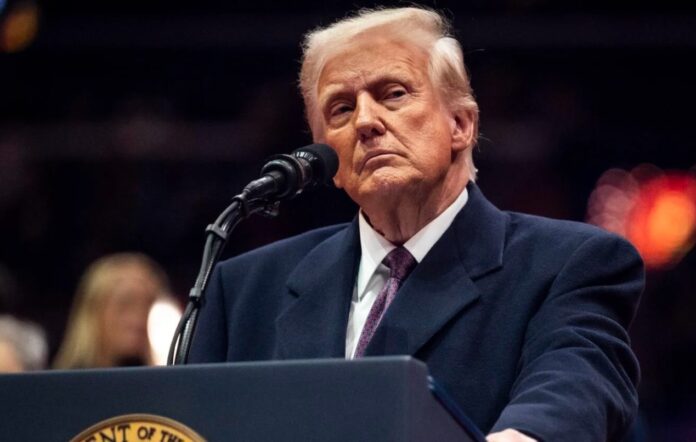By BARBARA HANEY
I am writing in my capacity as a private citizen and as an economist to respond to some comments from a recent event titled, “Bridge the Divide” held at the Fairbanks North Star Borough Assembly Chambers. As a former faculty who taught political economy at UAF, I was unable to attend due to Open Meetings Act constraints. It would have been nice to be able to attend and directly address issues raised, but alas, state statute restricts the number of elected officials that can attend an event, and other assembly members had indicated to me that they were going.
However, it is my understanding, based on media reports, that at that meeting an argument was advanced that President Trump’s tariff policies are unconstitutional. At first blush, that seems correct, but a bit of research and experience suggest the President is acting within his legislative authority.
In 1890, Congress passed a tariff act that delegated authority to the President to establish tariffs on selected goods. In 1892, Field v. Clark, challenged the authority of the Congress to delegate powers to the president under the Tariff Act of 1890. The Supreme Court upheld the 1890 Act and the President’s role in fulfilling a Congressional mandate.
In 1934, Congress delegated additional authority to the executive branch through the Reciprocal Trade Agreements Act of 1934. This act gave the president the ability to change tariffs rates by 50% and negotiate bilateral trade agreements without additional approval from Congress.
There are also other statutory provisions that allow the President to engage in unilateral tariff authority. Section 232 of the Trade Expansion Act of 1962 allows the President to modify tariffs if they compromise national defense. These tariffs could be implemented without a sunset date.
Then there is the Trade Act of 1974. Section 122 allows the president to enact temporary tariffs to address large and serious balance of payments deficits or other situations that present fundamental international payments challenges. Section 201 of the Trade Act of 1974 allows the president to implement an 8-year tariff if the International Trade Commission determines a domestic industry issue is threatened by a surge of cheap goods. Section 301 of the 1974 act allows the President to act on recommendations by the United States Trade Representative (USTR) to authorize tariffs, up to 4 years, on foreign countries that restrict U.S. commerce in “unjustifiable,” “unreasonable,” or “discriminatory” ways. There are other provisions available to the president under the International Emergency Economic Powers Act of 1977.
Thus, it seems that the President is operating under the authority granted long ago by Congress. Of course, tariff law is hardly the bailiwick of a gender studies faculty that were presenting. That is something an economist would be most likely to have some familiarity. Too bad there wasn’t one on the panel.
Barbara Haney received her PH.D in economics from the University of Notre Dame and formerly taught in the economics department at UAF. Her opinions are her own.
